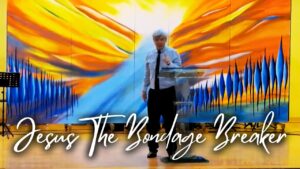Scripture Reading: 1 Peter 2:4-5
1 Peter 2: 4-5 says ‘Coming to Him as to a living stone, rejected indeed by men, but chosen by God and precious, you also, as living stones, are being built up a spiritual house, a holy priesthood, to offer up spiritual sacrifices acceptable to God through Jesus Christ.’
The words ‘rocks’ and ‘stones’ are written more than 300 times in the Bible, and they have a MUCH greater meaning than what is revealed on the surface. Certain stones deliver certain messages. Stones were widely used as a building material, a marker of important events, as weapons, but most important of all, stones were used as an analogy for believers. The bible also mention different kinds of stones. We have the uncut stones, the smooth stones, the burnt stones, the sharp stones, the cornerstones, the stones of stumbling, etc. Let’s learn about the different kinds of stones and its spiritual and esoteric (secret) meanings.
1. Dressed stones versus uncut stones
Exodus 20:24-25 says ‘Build for me an altar made of earth, and offer your sacrifices to me—your burnt offerings and peace offerings, your sheep and goats, and your cattle. Build my altar wherever I cause my name to be remembered, and I will come to you and bless you. If you use stones to build my altar, use only natural, uncut stones. Do not shape the stones with a tool, for that would make the altar unfit for holy use.’
In some translation, the phrase ‘do not shape the stones’ is interpreted as ‘don’t use stones that were cut with an iron tool’. Amplified bible called these stones as ‘hewn stones’ and the Message bible called them ‘dressed stones.’
Reference to a single altar indicates that God intended that worship should be centralized in one place. We come together on a Sunday, which is the Lord’s Day and worship him as a body of Christ. When Exodus 20:24 says ‘an altar of earth’ it implies a simple structure. The altars were not to be lavish. They were to consist of simply a mound of earth or a heap of loose rocks, totally uncut, depending on which material was available in the region. The disciples of Jesus Christ were amazed at the splendour of Herod’s temple but Jesus reminded them of its transience (brevity) and ephemeral (passing) nature. After Jesus made that statement, Herod’s temple came down 40 years later. God does not want us to waste time building an earthly temple. I think God is pleased with the simple church of ours. The important function of this church is that we can worship God and God, being pleased with it, bring His presence down. I believe that all of you can testify that every time we gather and worship there is the distinct presence of God in this place; signifying his approval and he is blessing this church. Many pastors came to this church and that first thing they told me was that it is a beautiful church. I would always reply that it is a simple church. Yahweh is satisfied with a simple altar and a simple church. Evangel Tabernacle is not ostentatious, yet it has its beauty. What God meant is ‘You need make for me only an altar of earth’, a simple structure. That will suffice, without images of silver or gold.’ Hewed stones means it is carved with figures and ornaments that might lead to superstition. No markings were allowed, probably to prevent the making of images in connection with the altar itself. Looks at the churches around you? They are carved with figures and ornaments and it definitely has led to many superstition. Well there was no expensive stones, metal or elaborately constructed materials used in the construction of this church. I think God is simply pleased with this church because our sacrifice and worship comes from the heart. Actually it is a command to build an altar of earth and not an option.
The difference between dressed (polished) stones and uncut stones can be likened to that of the work of God compared to the work of men. Uncut stones is the work of God. Dressed stones is the work of men. Our stones need to be uncut, natural or raw rather than shaped or dressed by us. Man in his fallen state builds his altar according to how he thinks he should build it; he trims it, arranges it, and gets creative according to his lifestyles and thinking. You don’t serve God according to your lifestyles and thinking. Today people attempts to build the most expensive church, decorates the church with gold and silver and idols. I call them dressed stones. The uncut stones on the other hand speaks of Jesus Christ and how we should approach Jesus. The erection of the uncut altar, reminding the people that sinners can approach God only on the ground of shed blood. The altar speaks of Christ as the way of approach to God. Man could contribute nothing to the perfection of Christ, either by the tools of personal effort (polished stones) or the steps of human achievement. The cut-out and dressed stone represents the work of men. In the passage, God’s people were accustomed to the culture of sacrificing but God wanted them to understand the meaning of sacrifice. If we keep dressing up our stones, they become idolatrous stumbling blocks. Our stones need to stay in its raw or basic state (it’s our sacrifice and our life of obedience and how we honour God and his word that matters).
Well when we do all these, God says, ‘Build my altar wherever I cause my name to be remembered, and I will come to you and bless you.’
2. Polished Stones/Smooth stones
I Samuel 17:1-3; 48-50 ‘Now the Philistines gathered their forces for war and assembled at Sokoh in Judah. They pitched camp at Ephes Dammim, between Sokoh and Azekah. Saul and the Israelites assembled and camped in the Valley of Elah and drew up their battle line to meet the Philistines. The Philistines occupied one hill and the Israelites another, with the valley between them. As the Philistine moved closer to attack him, David ran quickly toward the battle line to meet him. Reaching into his bag and taking out a stone, he slung it and struck the Philistine on the forehead. The stone sank into his forehead, and he fell face down on the ground. So David triumphed over the Philistine with a sling and a stone; without a sword in his hand he struck down the Philistine and killed him.’
Now we all know what a rock looks like. For the most part, the edges are jagged and ugly, and no one builds a house with a bunch of unshaped rocks. We can call these rocks uncut stones. Stones, however, are nothing more than rocks that have been made smooth by the continuous action of water flowing over them. The smooth stones here is different from the dressed stones in the earlier point. The dressed stones became polished because of the handiwork of men. The smooth stones comes about as a result of nature, representing God. The smooth stones upon the bed of the rushing streams of rivers are not the work of men but God. If you go to Australia, they have along a coastal stretch of road. Just outside the shore are huge stones that were shaped thousands of years by the storms and winds. They became such beautiful images that they were called the twelve apostles. They are magnificent to look at. And it is not the work of men but of God that curved out these 12 apostles. Definitely the smooth stones upon the bed of the rushing streams of waters are the work of God. God wants us to be that polished stones, smooth stones.
Here we have the example of David’s life. David got rid of Saul’s armour before he attacked Goliath. He took off the armour but he did not remove his clothes or the garments beneath the armour. He was someone who relied on the grace of God.
The bible tells us that a valley separates the camp of Saul and the army of the Philistines. They were separated by a stream of river. I believe most likely David got his stones from that Valley. David chose five smooth stones. They were polished and emerged from water. The smooth stones represents David. David had prepared his life for battle. He fed himself with hymns and God’s word. I loved the way the message bible translated Matthew 4:4 which ways ‘It takes more than bread to stay alive. It takes a steady stream of words from God’s mouth’. That is what David did. He took care of his soul in preparation for the day that God was to use him. He took care of his sheep. He even fought lions and other beasts to protect his sheep. This is representative of how he allowed God to build up his character and nourish his soul. I see two types of people. One is, when the sudden trial and storms appear, they panic, break and are totally a chaotic mess. Another, is just calm, steady and goes about solving the problem. He or she simply has been moulded by the steady streams of words from God’s mouth.
The polished or smooth stone is symbolic of a life immersed in the Holy Spirit (portrayed by water) for years. It talks about the work of the Holy Spirit cleansing and polishing our lives so that we can one day be useful for God’s plan, so that we can help other people one day. The five small stones that killed Goliath can be compared to the five small fish that fed five thousand hungry people. We the smooth stones, will be very fruitful and do exploit for the kingdom of God. Take note that the stone had to be washed and polished so that it could one day be transported to the battlefield to kill the giants of this world.
3. The burnt stones
2 Kings 18:30-39 says ‘Then Elijah called to the people, “Come over here!” They all crowded around him as he repaired the altar of the Lord that had been torn down. He took twelve stones, one to represent each of the tribes of Israel, and he used the stones to rebuild the altar in the name of the Lord. Then he dug a trench around the altar large enough to hold about three gallons. He piled wood on the altar, cut the bull into pieces, and laid the pieces on the wood. Then he said, “Fill four large jars with water, and pour the water over the offering and the wood.” After they had done this, he said, “Do the same thing again!” And when they were finished, he said, “Now do it a third time!” So they did as he said, and the water ran around the altar and even filled the trench. At the usual time for offering the evening sacrifice, Elijah the prophet walked up to the altar and prayed, “O Lord, God of Abraham, Isaac, and Jacob, prove today that you are God in Israel and that I am your servant. Prove that I have done all this at your command. O Lord, answer me! Answer me so these people will know that you, O Lord, are God and that you have brought them back to yourself.” Immediately the fire of the Lord flashed down from heaven and burned up the young bull, the wood, the stones, and the dust. It even licked up all the water in the trench! And when all the people saw it, they fell face down on the ground and cried out, “The Lord—he is God! Yes, the Lord is God!”
Here we talk about stones that are burnt, melted and consumed by God’s fire. We are children of God, chosen by Him; we are expected to be a holy nation because we belong to Him. Elijah had to battle against the pagans and the Israelites who turned towards Baal instead of to God. Elijah needed God’s fire to rain down from heaven to bring back His people to Him. There are two ways to bring things together: either we freeze them together or we burn them together. God had chosen his fire to fuse us to Him in order to burn out the things that displease Him. He used the fire to bring back His people to the altar. Our life on His altar is like our life on His cross. It’s about the idea of denying oneself.
The sun is said to be 1 500 degrees Celsius. Take note that God’s fire from heaven is even hotter than that. His fire is capable of transforming our lives and of changing the nature of everything it touches.
4. The sharp stone
Exodus 4:24-26 says ‘On the way to Egypt, at a place where Moses and his family had stopped for the night, the Lord confronted him and was about to kill him. But Moses’ wife, Zipporah, took a flint knife and circumcised her son. She touched his feet with the foreskin and said, “Now you are a bridegroom of blood to me.” (When she said “a bridegroom of blood,” she was referring to the circumcision.) After that, the Lord left him alone.’
The sharp stone is one that cuts through us. It does its work. Moses was about to die and Zipporah had to circumcise their son to prevent God from killing Moses. This was just after God told Moses He wanted to use Him. The sharp stone is symbolic of circumcision. It is a sign of belonging to God or of setting our lives apart. The “bridegroom of blood” is a foreshadowing of Jesus Christ. God wanted to use Moses but did not allow him to be out of His will. He had to circumcise his son and set him apart. I feel personally that I am called of God and God wants to use me. And God will not allow me to be out of His will and so He had to circumcise me to set me apart. And he did it the last three years. The sharp stone cuts through me. And the sharp stones does its work. And when the circumcision is finished it produces fruitfulness and holiness.
Deuteronomy 30:6 and 10:16 talk about circumcising our hearts. There are people who refuse to allow God to touch and circumcise their hearts because they have been hardened (Jeremiah 6:10). God wants to take away everything that obstructs (our intelligence, our spirit of pride or arrogance, etc.) The circumcision is related to our flesh. God does not tolerate our flesh. We cannot tolerate our fleshly desire.
5. The corner stone
Jesus is the corner stone. He has shown us that He is worthy and we can build our lives upon this stone. We are able to be fruitful and useful when he is with us. In French, corner stone is written as “angular stone”. It talks about aligning our lives according to the same angle as Jesus’. When we don’t understand the thoughts and messages of the Holy Spirit, it’s because our lives or our thoughts are not aligned with this corner stone.
We have a choice on who or what we build our lives upon. This is illustrated through what we align our behaviour with as well as our career, our personal life, our choice of spouse, etc.
6. The stone of stumbling
A wall is made up of several stones. When small stones detach themselves from a wall or from a structure, the whole thing may collapse. The small stumbling stones represent tiny roots that, if not taken care of, can make our lives or relationship with God collapse. Bitterness and unforgiveness are two classic examples. We need to take care of our spiritual lives and prevent these harmful seeds from growing in our lives. We need to accept the idea of being part of God’s structure and following his example or model.
7. The Living Stone
1 Peter 2: 4-8 says ‘Coming to Him as to a living stone, rejected indeed by men, but chosen by God and precious, you also, as living stones, are being built up a spiritual house, a holy priesthood, to offer up spiritual sacrifices acceptable to God through Jesus Christ. Therefore it is also contained in the Scripture, “Behold, I lay in Zion, A chief cornerstone, elect, precious, And he who believes on Him will by no means be put to shame.” Therefore, to you who believe, He is precious; but to those who are disobedient, “The stone which the builders rejected has become the chief cornerstone,” and “A stone of stumbling And a rock of offense.” They stumble, being disobedient to the word, to which they also were appointed.
The living stones are the chosen stones and God’s chosen people
We cannot prevent problems or obstacles (or stumbling blocks) from occurring in our lives but our reactions can change our course of life. The difference does lie in how huge these stumbling blocks are but rather in how we deal with them. God allows us to encounter such stumbling blocks so that we can take advantage of them. He uses them to that we can grow to become stronger and more stable (just like a rock).





